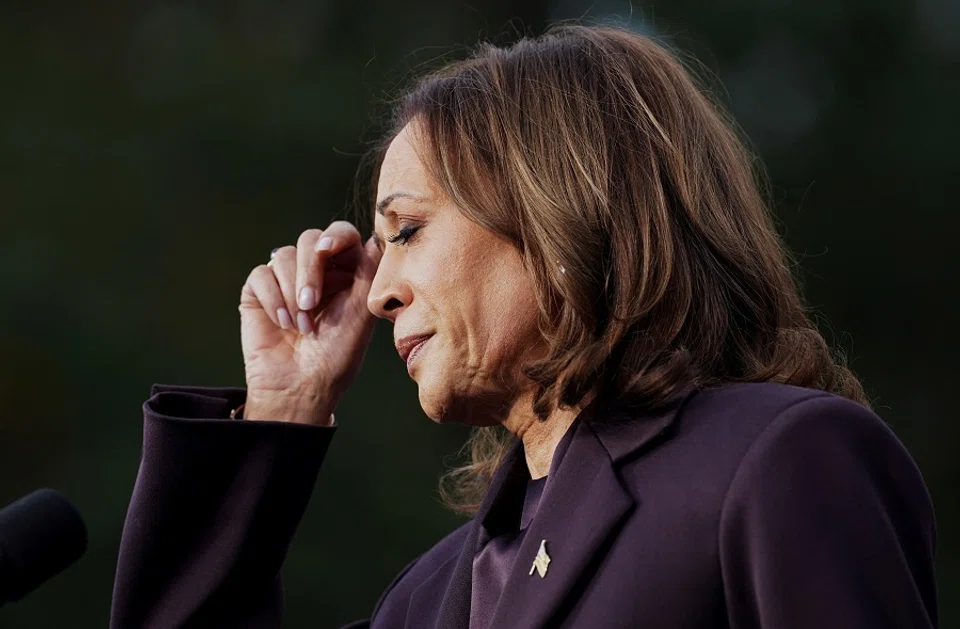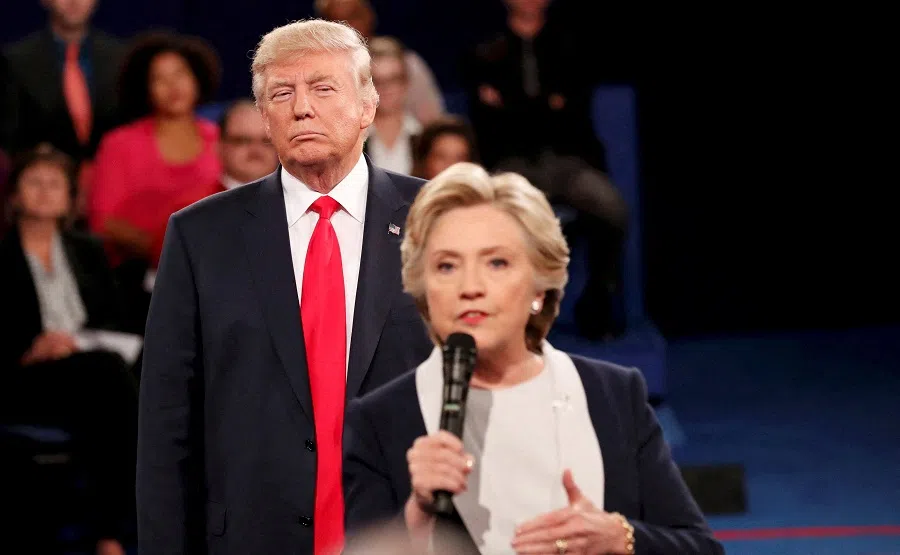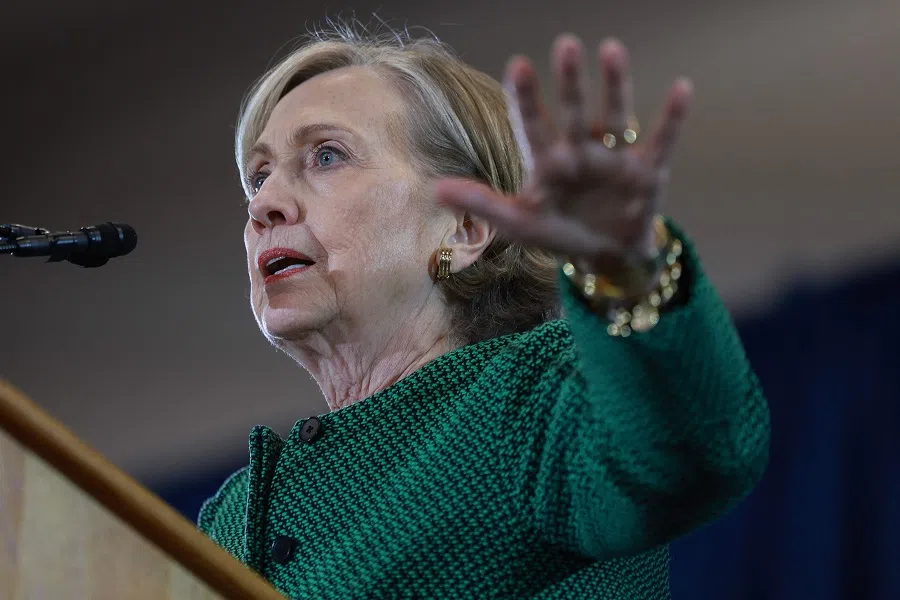America is not yet ready for a female president
Commentator Zhang Tiankan notes that US presidential candidate Kamala Harris lost the election due to her lack of experience and unconvincing campaign rhetoric. Meanwhile, voters picked President-elect Donald Trump in a rejection of the Democratic Party’s policies and measures.

The dust has settled on the 2024 US presidential election.
Donald Trump, running as the Republican candidate, secured 312 electoral votes and received 74,832,527 popular votes, with a vote share of 50.4%. Kamala Harris, running as the Democratic candidate, earned 226 electoral votes and received 71,238,534 popular votes, with a vote share of 48.0%.
This indicates that Trump surpassed Harris in both electoral and popular votes, making him the 47th president of the US.
Trump’s re-election victory is notable not only for securing the necessary 270 electoral votes but also for winning the popular vote. This contrasts sharply with his 2016 victory, where he lost the popular vote to Hillary Clinton by nearly 2.9 million votes, despite securing 304 electoral votes to her 227.

Several factors contributed to Trump’s re-election, and a few key ones clearly stand out. An important one is that the Americans are not ready for a female president. This is evident not only in societal attitudes but also in the rejection of Kamala Harris and the Democratic platform by voters.
The number of women in politics in the US falls far behind not only western Europe, but also many developing countries.
US has some way to go in terms of women in politics
According to the United Nations, the global share of women in parliamentary office has reached 25.5%. Yet, in the US, where women make up 51% of the total US population, the percentage of women holding seats in Congress is just about 29%, which does not compare well with figures around the world.
The number of women in politics in the US falls far behind not only western Europe, but also many developing countries. Even just a cursory glance at these figures alone suggests that Americans may still have a long way to go before they are ready to accept and embrace a female president.
On the other hand, when considering the personal qualities and strengths of a president, Americans have a ready comparison in Kamala Harris and Hillary Clinton. In 2016, Americans were prepared to accept Hillary as president, largely due to her recognised personal strengths and political experience.

Compared with Harris, Hillary’s political experience and ability are clearly more recognised by the people. In the early years, Hillary was already one of the country’s most influential lawyers. During her husband Bill Clinton’s two terms as president (1993 to 2001), Hillary also played a significant political role as First Lady.
More importantly, after Bill stepped down as president, Hillary served as US senator from New York for eight years, before becoming the 67th US secretary of state. Subsequently, in the 2016 presidential race against Trump, she lost the electoral college but won the popular vote.
She has been criticised for being severely bureaucratic, being harsh with subordinates, lacking clear objectives and execution plans, and being emotionally unstable in private.
Harris’s qualifications
While Harris is indeed capable, she is seen by the public as one of the beneficiaries of America’s “political correctness” or “identity politics”. This is because the US’s political and social ideals, especially that of the Democrats, emphasise the participation of minority and marginalised groups. Harris’s identity as a woman, a minority, and her multicultural background became her natural advantages, which is why incumbent US President Joe Biden chose her as his running mate, leading to her election as vice-president.
Before she became vice-president, Harris served as a local prosecutor and was Attorney General of California as well as US Senator from California, giving her some political experience. However, she lacks experience in international diplomacy and political-military affairs.
Since taking office as vice-president, Harris’s responsibilities have not been stellar, and her leadership has been questioned. She has been criticised for being severely bureaucratic, being harsh with subordinates, lacking clear objectives and execution plans, and being emotionally unstable in private.
... many people think that Harris has consistently ridden on the coattails of someone else and benefited from political correctness, lacking the necessary abilities to serve as president.

Furthermore, her handling of border affairs and the illegal immigration issue is seen as disastrous, leading to a humanitarian crisis at the border, such as the separation of illegal immigrants from their children. Thus, in 2023, both Politico and The Hill published articles claiming that Harris is one of the least popular vice-presidents in US history.
By the time of the 2024 presidential election, it was due to Biden’s advanced age and perceived ineffectiveness that, under pressure from the entire Democratic Party, he stepped aside to allow Harris to represent the Democrats in the election. Hence, many people think that Harris has consistently ridden on the coattails of someone else and benefited from political correctness, lacking the necessary abilities to serve as president.
Rejection of Democratic Party’s policies
In the 2024 presidential election, Trump’s victory and Harris’s defeat were also due to the Democratic Party’s policies not being accepted by most Americans. Like the masses in the rest of the world, Americans are not overly concerned with issues like immigration and foreign policy. Instead, they primarily focus on whether their wallets are full and if they can live better lives.
It seems that while the economic platform put forward by Harris and the Democrats — lower prices, tax cuts, increased social security — is better, it was more radical than Biden’s policies. A study by the Committee for a Responsible Federal Budget showed that if Harris’s economic policies were implemented, it would add at least US$2 trillion — some say up to US$3.5 trillion — in US deficits over the next ten years (from fiscal year 2026 to 2035).

Adding to this the national healthcare plan and the even more radical US$10 trillion climate plan, a Harris victory would mean that the US economy would continue to deteriorate. This would not only significantly swell the US deficit but would also sow the seeds of a larger-scale economic crisis in the future, in turn preventing her from gaining wider support across different demographics.
... due to the US’s relatively mature legal and administrative systems, which provide effective checks and balances, Trump is unlikely to take extreme measures that deviate significantly from overall US policy.
Implications of Trump’s re-election
Trump’s re-election also signifies the American public’s anxieties and fears surrounding the Democratic Party’s far-left policies and emphasis on political correctness, particularly regarding the increasingly prominent LGBTQ+ — lesbian, gay, bisexual, transgender, queer and others — group, represented by the six-colour rainbow flag.
Indeed, Trump’s re-election also implies a rectification of the accusations surrounding the 2020 presidential election, such as persistent complaints about non-citizens voting, dead voters, and alleged manipulation of ballot machines by certain agencies. While these accusations have been denied with no concrete evidence, they have led many to believe that the 2020 election was neither fair nor just, resulting in the overcorrection at this election.

Although Trump’s re-election will bring some policy changes and his volatility and policy unpredictability will inject uncertainty into the US’s impact on the world, such as its influence on the Russia-Ukraine war and the situation in the Middle East, specific changes will depend on Trump’s words, actions and policies.
However, due to the US’s relatively mature legal and administrative systems, which provide effective checks and balances, Trump is unlikely to take extreme measures that deviate significantly from overall US policy. Otherwise, he would fail to make America great again, and Americans can use their votes to remove him from office after four years, or even impeach him before then.
This article was first published in Lianhe Zaobao as “美国还没准备好迎接女总统”.





